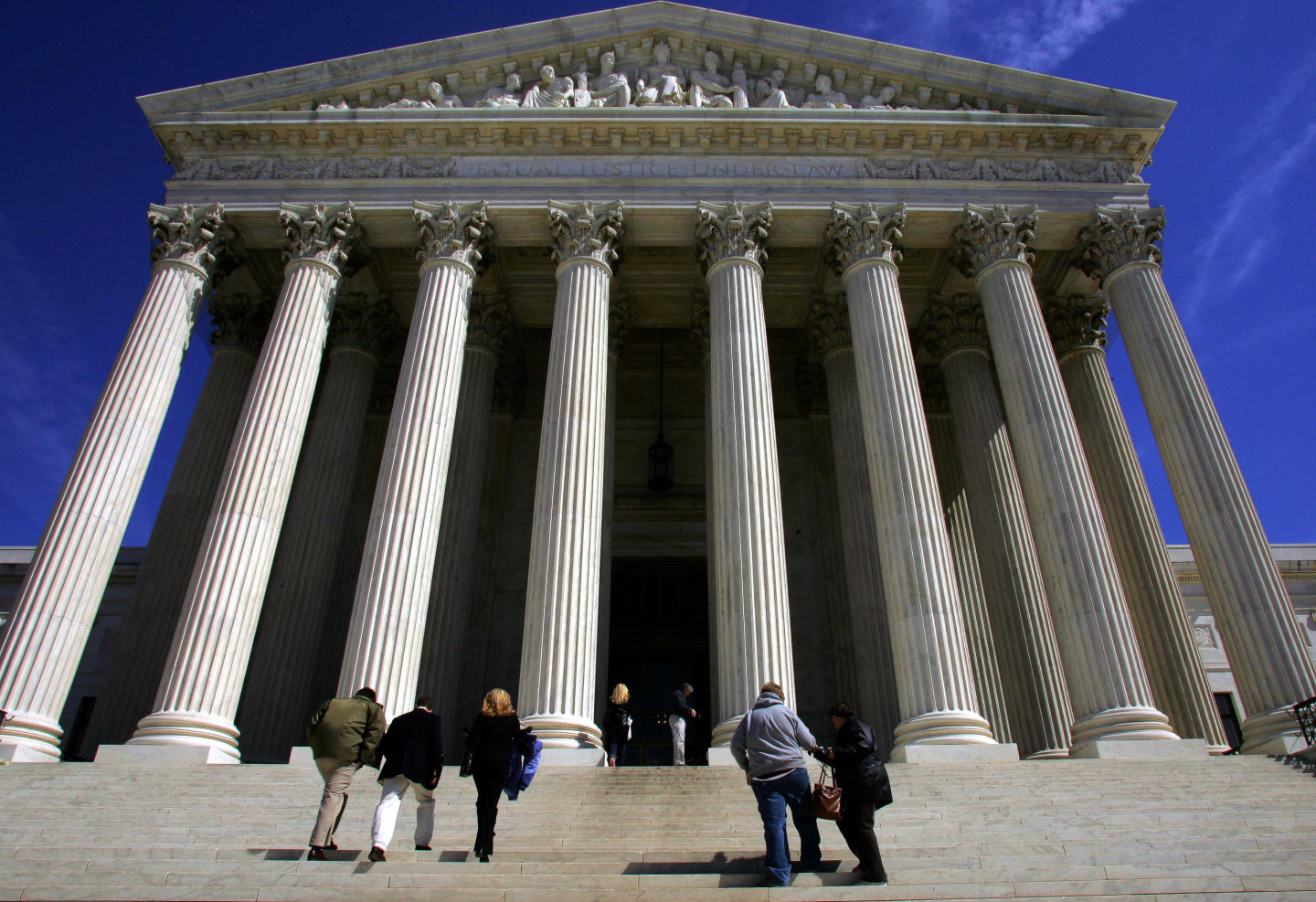The conservative/libertarian Center for Individual Rights is representing Rebecca Friedrichs, the Orange County teacher who sued. The group's president, Terry Pell, said Friedrichs, a 25-year classroom veteran, had a good relationship with the union -- including a stint as a union representative --until the economic crash in 2008.
"The school district was laying off newer teachers who were quite good at what they did," he said. "Rebecca went around to the other teachers and said, 'If we all took a 2 percent pay cut, we could save their jobs,' and the other teachers agreed. She took it to the union and one official after another said absolutely not."
Pell said those conversations led Friedrichs to believe that the union has different priorities than she does, and "she shouldn't have to fund an organization she fundamentally disagrees with."
Plaintiffs Claim Fees Violate First Amendment Rights
In the 1977 decision in Abood v. Detroit Board of Education, the court upheld arrangements that require service fees or dues from employees who choose not to be part of a union. The rationale for that decision rested in large part on the benefit employees get from unions' role in negotiating contracts and representing workers with grievances. And while unions engage in political activity, the court said, that doesn't interfere with the First Amendment rights of individual workers.
But Pell argues everything a public employee union does -- even collective bargaining -- is inherently political and therefore people like Friedrichs should be able to opt out. He argues that because any raise in teacher salary is funded by tax dollars, forcing teachers to fund negotiations is compelling them to identify with a public policy cause, a violation of their First Amendment rights.
"That’s an example of something the union negotiated for -- higher salaries -- that’s actually quite political," Pell said. "Reasonable people can disagree whether higher salaries are actually a good thing, especially when the economy is falling apart."
Friedrichs and her fellow plaintiffs want the court to overrule the Abood decision and strike down laws requiring even nonunion employees to pay fees in the 25 states that have such statutes on the books.
"If we win, then they will have the chance to say no with their feet and their checkbook -- they won't have to pay dues," Pell said.
Unions, State Say Case Threatens Union Structure
But the state of California, the CTA and allies argue that a ruling in favor of Friedrichs could undermine the entire system of public employee collective bargaining here and nationwide.
"We don't have a system where the union only has an obligation to represent its own members," says William Gould, professor emeritus at Stanford Law School. "The minority who don't want the union still have the right to benefit from anything the union does through collective bargaining."
Gould joined an amicus brief on behalf of the CTA. The union argues that if nonmembers can be represented by the union without paying any fee, there would be a strong incentive to become a "free rider" and not join the union. Fewer paying members could lead to a weakened force at the negotiation table.
Instead, Gould urges teachers like Friedrichs to voice their displeasure with union decisions by electing new leaders.
"I may object to President Bush pursuing the Iraq War, but I can’t determine for myself that my taxes used for those purposes should be withheld," he said. "Similarly, the dissident employees may not like the unions’ pursuit of grievances of safety or wages in the collective bargaining process. The answer in both situations is to get different political leadership."
Decision Could Shift Power at the Ballot Box
The court will also consider a second question, one that has direct implications for the political weight of public sector unions.
Currently, teachers in California have the ability to opt out of funding the union's political activities. If they decide that they don't want to give the union money to support candidates, ballot measures and legislative lobbying, they will receive a refund for that portion of their dues.
Friedrichs wants the court to change that and make opting in the default option under the law. Such a system would require union members to fill out a form and agree to pay dues.
Any lapse in dues directed toward political purposes would have an adverse effect on the state's Democratic Party. The CTA has consistently given far more to Democrats than Republicans in statewide and legislative races, and the union's support for Democratic causes extends to initiatives and legislative lobbying.
Will Case Split Conservatives on the Court?
The door to the eventual Friedrichs challenge was opened in the 2012 case Knox v. SEIU, when conservative Justice Samuel Alito wrote in his decision that the union model requiring nonmembers to contribute was an "anomaly" not seen in other associations of doctors, professors or even neighbors.
Now that the challenge has made it to the Supreme Court, the unlikely union ally may be another conservative, Antonin Scalia. In a 1991 case weighing union contributions and First Amendment rights, Lehnert v. Ferris Faculty Association, Scalia expressed support for the fee model that the CTA and other public sector unions have in place for nonmembers:
"Where the state imposes upon the union a duty to deliver services, it may permit the union to demand reimbursement for them; or, looked at from the other end, where the state creates in the nonmembers a legal entitlement from the union, it may compel them to pay the cost."
